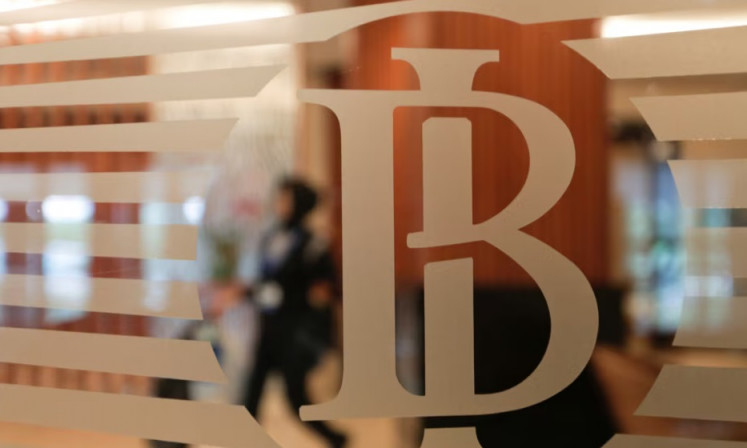Popular Reads
Top Results
Can't find what you're looking for?
View all search resultsPopular Reads
Top Results
Can't find what you're looking for?
View all search resultsRI hosts world Islamic forum as momentum builds up
Indonesia is building up the momentum to dig deeper into the largely untapped Islamic financing sector as it hosts the Fifth World Islamic Economic Forum (WIEF) from March 1-3
Change text size
Gift Premium Articles
to Anyone
Indonesia is building up the momentum to dig deeper into the largely untapped Islamic financing sector as it hosts the Fifth World Islamic Economic Forum (WIEF) from March 1-3.
The country’s Islamic financing industry remains relatively small compared to the overall financing industry, but having last year enacted the Islamic Financing and Islamic Bond Laws, the government is upbeat about the industry outlook, with the ongoing crisis in the “conventional system” giving a further boost for growth in Islamic-based financing.
“The latest global crisis has taught us that an economic [system] based on unreal transactions will easily be ruined,” Vice President Jusuf Kalla told a pre-opening conference of the forum on Sunday.
Being relatively untouched by the current global economic meltdown, the Islamic banking and finance system has shown its resilience and the potential it has to continue growing, Kalla said.
“We all know that Muslim countries with Islamic economic systems during this current [crisis] situation are relatively unaffected by serious problems,” he added.
Indonesian President Susilo Bambang Yudhoyono and Malaysian Prime Minister Abdullah Ahmad Badawi will officially open the annual forum, where delegates from 30 countries have confirmed their participation.
Among the issues in focus at the forum will be security of food, energy and finances amid the worldwide economic downturn.
Global Islamic banking has gained in popularity, with the industry now worth more than US$1 trillion.
In Indonesia, the amount of financing provided by the country’s Islamic banking institutions has grown from a mere Rp 5.53 trillion ($458 million) in 2003 to Rp 27.94 trillion in 2007 and Rp 38.19 trillion in 2008 — but the 2008 figure still constituted less than 3 percent of the total amount of national bank financing.
According to central bank data, there are currently 1,470 sharia bank offices across the country, with total disbursements of Rp 326 billion in loans for micro- and small-scale firms as of the end of 2008.
Last month, the public responded warmly to the government’s first retail sukuk (Islamic bonds).
From the issue, the government managed to book orders of up to Rp 5.56 trillion of retail sukuk in less than a month, or about three times its initial target of Rp 1.77 trillion as originally submitted by 13 designated selling agents.
Bank Indonesia Governor Boediono has said that sharia-based banking and economy were virtually at “no risk” of succumbing to a crisis if implemented correctly, because unlike the conventional capital system, they rejected speculative practices without underline transactions — the culprit behind the ongoing global crisis.










